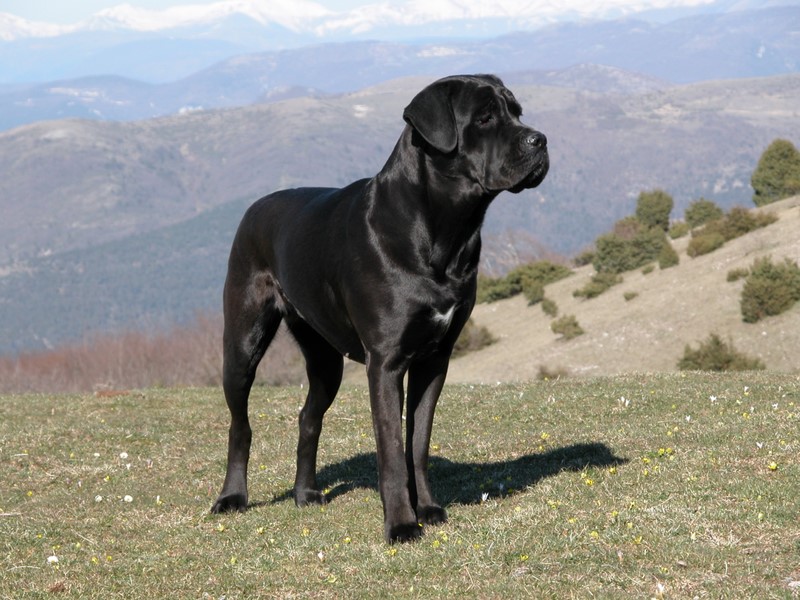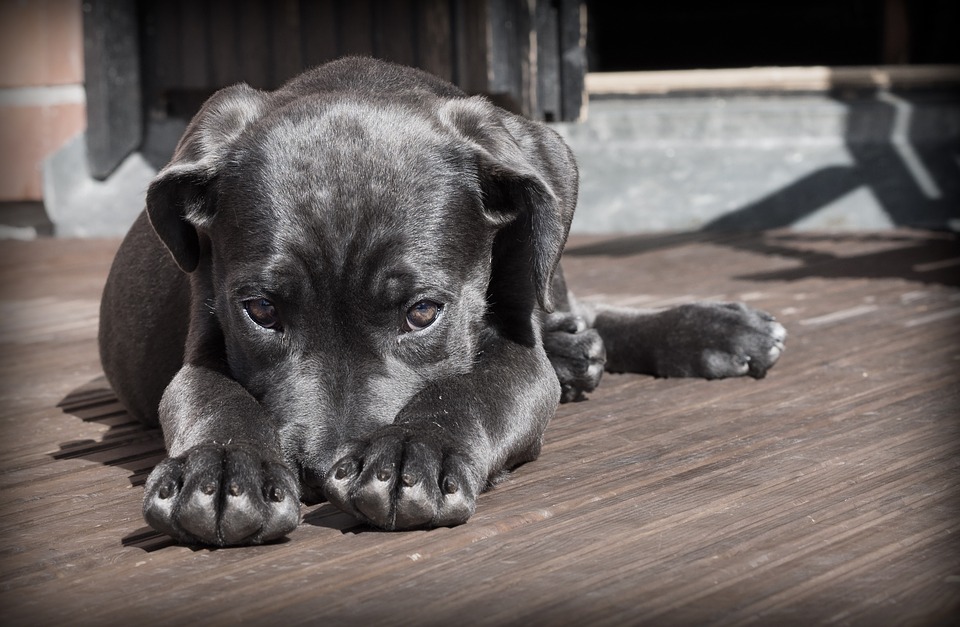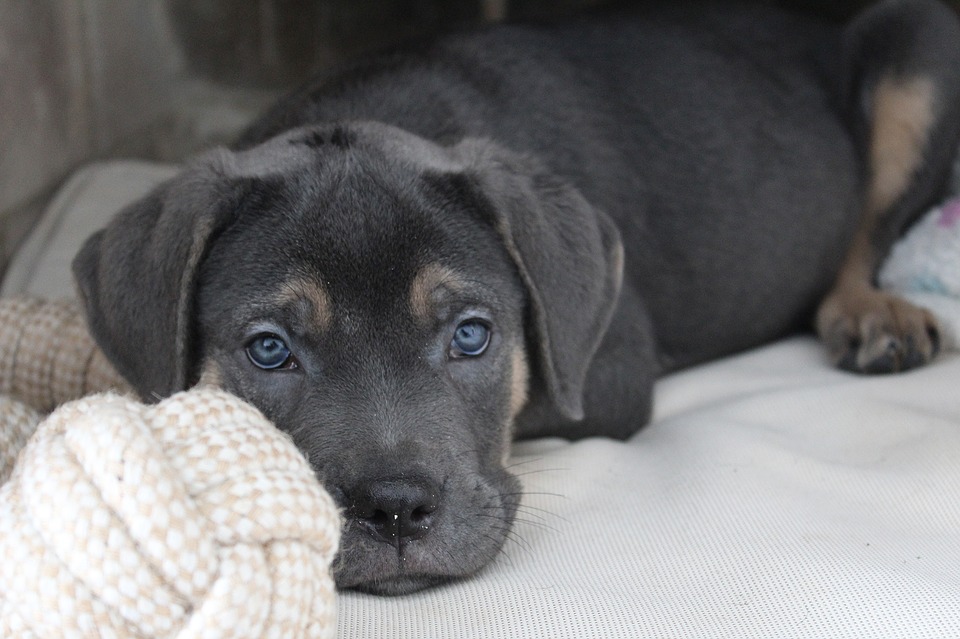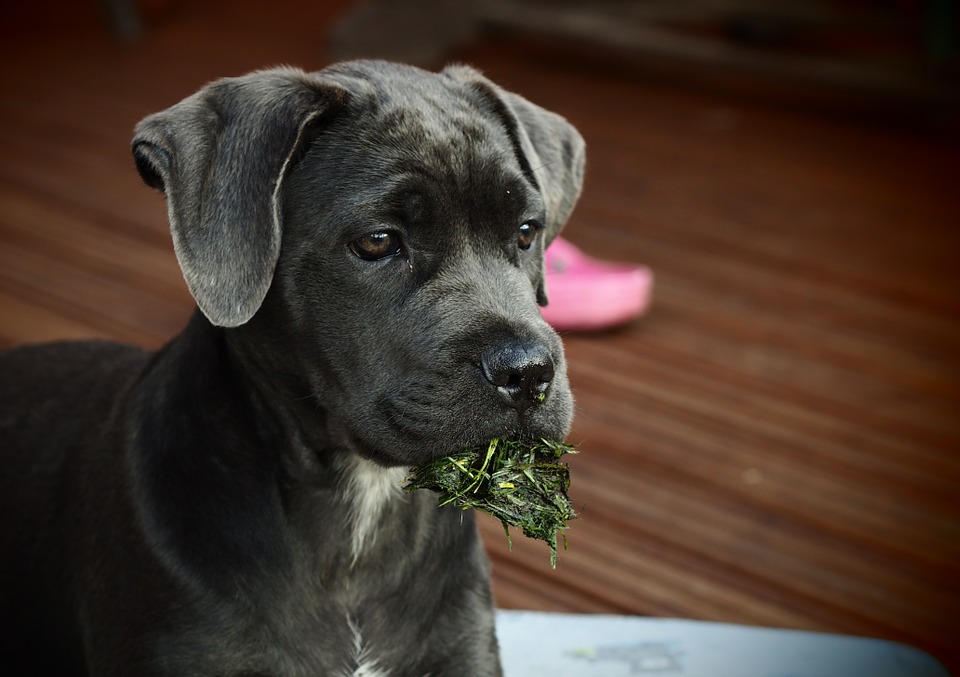
Italian Cane Corso: A Comprehensive Guide
The Cane Corso, a powerful and majestic breed, is renowned for its loyalty, strength, and protective nature. This working dog breed, originating from Italy, has gained popularity worldwide for its impressive physical attributes and steadfast temperament. Known for being excellent guard dogs, Cane Corsos are not only reliable protectors but also affectionate family companions.
History of the Cane Corso
The history of the Cane Corso dates back to ancient Rome, where their ancestors were used as war dogs and for hunting large game. The breed’s name derives from the Latin «Cohors,» meaning «guardian» or «protector.» Historically, Cane Corsos were employed to guard property, livestock, and families, as well as to assist in hunting wild boar and other formidable prey.
In the mid-20th century, the breed faced near extinction but was revived by dedicated enthusiasts who recognized the Cane Corso’s invaluable qualities. The breed was officially recognized by the American Kennel Club (AKC) in 2010, and since then, it has become a beloved breed among dog enthusiasts.
Physical Characteristics of the Cane Corso

Cane Corsos are large, muscular dogs with a commanding presence. Males typically stand between 25 to 27.5 inches at the shoulder and weigh around 90 to 110 pounds, while females are slightly smaller, standing 23.5 to 26 inches tall and weighing between 85 to 100 pounds.
The breed has a short, dense coat that comes in various colors, including black, gray, fawn, and red. Some Cane Corsos may also have brindle patterns or a black mask. Their broad heads, strong jaws, and alert expressions contribute to their formidable appearance. Additionally, their deep chests and well-defined muscles highlight their strength and agility.
Temperament and Personality
Cane Corsos are known for their protective and loyal temperament. They are highly intelligent and can be both assertive and affectionate. This breed is naturally wary of strangers, making them excellent guard dogs. However, they are also gentle and loving with their families, including children and other pets.
Due to their protective instincts, early socialization and consistent training are crucial to ensure they grow into well-mannered and confident adults. Cane Corsos thrive on human companionship and do best in homes where they are included in daily activities and given plenty of attention.
Health and Common Issues

Like all dog breeds, Cane Corsos are prone to certain health issues. Some of the most common health problems seen in the Cane Corso dog breed include:
- Hip Dysplasia: A genetic condition that affects the hip joints, leading to arthritis and mobility issues.
- Bloat (Gastric Dilatation-Volvulus): A serious condition where the stomach twists, cutting off blood flow and causing a life-threatening situation. Immediate veterinary attention is required.
- Elbow Dysplasia: A condition affecting the elbow joints, leading to pain and lameness.
- Entropion: A condition where the eyelid rolls inward, causing irritation and potential damage to the eye.
- Cherry Eye: A condition where the gland of the third eyelid becomes swollen and visible.
Regular veterinary check-ups, a balanced diet, and proper exercise are essential to keep Cane Corsos healthy and to manage potential health issues early on.
Care and Maintenance
Caring for a Cane Corso involves regular grooming, exercise, and mental stimulation. Their short coats are relatively low maintenance and require weekly brushing to remove loose hair and keep the coat looking its best. Bathing should be done as needed, typically every few months.
Dental care is important, so brushing their teeth several times a week is recommended to prevent dental disease. Regular nail trimming and ear cleaning are also essential aspects of Cane Corso care to prevent infections and maintain overall hygiene.
Training Your Cane Corso

Training a Cane Corso requires consistency, patience, and positive reinforcement techniques. Due to their intelligence and eagerness to please, Cane Corsos can excel in obedience training, but they can also be independent and stubborn at times. Early socialization and puppy training classes are highly recommended to ensure they develop good manners and confidence.
It’s important to make training sessions fun and engaging to keep their interest. Cane Corsos respond well to treats, praise, and playtime as rewards for good behavior. Crate training can also be beneficial, providing them with a safe space and helping with housebreaking.
Exercise Needs
Cane Corsos have high exercise needs and require plenty of physical activity to stay happy and healthy. As a working dog breed, they thrive on activities that challenge their bodies and minds. Daily walks, runs, and play sessions are essential to burn off their energy.
Activities such as hiking, obedience training, and agility exercises are also excellent ways to keep a Cane Corso engaged and physically fit. Without sufficient exercise, Cane Corsos can become bored and may develop behavioral issues such as chewing, digging, or excessive barking.
Cane Corso Puppies: What to Expect
Bringing home a Cane Corso puppy is an exciting and rewarding experience. Cane Corso puppies are known for their playful and curious nature. It’s important to provide them with a safe and stimulating environment to explore and learn.
Early socialization is crucial, exposing them to different people, environments, and other animals to help them grow into well-adjusted adults. Puppy-proofing your home and providing plenty of chew toys can prevent destructive behavior during the teething phase.
Feeding Cane Corsos: Puppy, Adult, and Senior Diets

Proper nutrition is vital for the health and development of Cane Corsos at every stage of life.
- Puppies: Cane Corso puppies require a diet rich in protein and fat to support their rapid growth and energy needs. High-quality puppy food that meets their nutritional requirements is essential. Look for formulas with real meat as the first ingredient and avoid fillers like corn and soy.
- Adults: Adult Cane Corsos benefit from a balanced diet that provides the right amount of protein, fat, and carbohydrates. It’s important to monitor their weight and adjust their food intake based on their activity level to prevent obesity. High-quality dry kibble, supplemented with lean meats, vegetables, and grains, can ensure they get the nutrients they need.
- Seniors: Senior Cane Corsos may require a diet lower in calories but still rich in nutrients to support their aging bodies. Foods formulated for senior dogs often contain joint supplements like glucosamine and chondroitin to help maintain mobility. Additionally, easily digestible proteins and fibers can promote healthy digestion.
Behavior with Children and Other Dog Breeds
Cane Corsos are generally good with children and can make excellent family pets when properly trained and socialized. Their protective nature makes them great guardians for the home, but it’s important to supervise interactions, especially with younger children, to ensure safety for both the dog and the child.
With other dogs, Cane Corsos can be sociable and enjoy companionship. However, their dominant nature may cause conflicts, particularly with other large or dominant breeds. Early socialization and training can help manage these instincts and promote harmonious relationships with other animals.
Ideal Environment for Their Development
Cane Corsos thrive in environments where they can get plenty of exercise and mental stimulation. They are best suited for homes with large, fenced yards where they can run and play freely. Apartment living can be challenging for this breed unless the owner is committed to providing ample daily exercise.
Cane Corsos do not do well when left alone for long periods as they can develop separation anxiety. They thrive in households where someone is often home or where they can be included in family activities. A stimulating and active environment is key to keeping a Cane Corso happy and healthy.
By understanding the unique characteristics, needs, and care requirements of the Cane Corso dog breed, potential owners can provide the best possible life for these powerful and protective dogs. Integrating thorough research ensures that the Cane Corso remains a cherished and well-cared-for companion.
Frequently Asked Questions:
Is a Cane Corso a good family dog?
- Yes, Cane Corsos can be excellent family dogs when properly trained and socialized from a young age. They are loyal, affectionate, and protective of their loved ones.
Is a Cane Corso more aggressive than a Pitbull?
- Aggression levels can vary among individual dogs, regardless of breed. Proper training and socialization are key factors in determining a dog’s behavior, rather than breed alone.
Can a Cane Corso be a house dog?
- Yes, Cane Corsos can live indoors as house dogs, provided they receive plenty of exercise, mental stimulation, and social interaction with their families.
Are Cane Corsos difficult to own?
- Cane Corsos are a large and powerful breed that requires firm leadership, consistent training, and early socialization. While they are not necessarily difficult to own, they do require a dedicated owner who can meet their needs.
Can Cane Corsos be left alone?
- Cane Corsos can tolerate being left alone for short periods, but they thrive on human companionship and may become anxious or bored if left alone for extended periods. They do best in homes where they receive plenty of attention and interaction with their owners.
How long do Cane Corsos live?
- On average, Cane Corsos have a lifespan of 9 to 12 years, although individual longevity can vary depending on genetics, health care, and lifestyle factors.
How smart are Cane Corsos?
- Cane Corsos are intelligent dogs with a strong independent streak. They are quick learners and can excel in obedience training with proper motivation and consistent guidance from their owners.
Italian dog names for your male Cane Corso
If you have a Corsican dog and are looking for a suitable name for it, you may be able to use one of the following:
Aaron, Abaco, Abram, Afro, Acer, Astra, Achille, Ala, Adelchi, Alex, Alec, Alfio, Ahmik, Amedeo, Akamu, Andra, Andrea, Alton, Argo, Amos, Arana, Aragon, Attila, Aramis, Arrigo, Asterix, Astro, Atreyo, Axel, Blue, Baffo, Baldo, Baloo, Barolo, Barret, Barù, Basco, Biagio, Biscotto, Blaster, Blues, Bomb, Boogie, Boris, Brenno, Brutus, Brigant, Buck, Bunter, Byron, Chivas, Cachito, Ciro, Caleb, Carlos, Ciriaco, Cash, Casper, Coda, Cassian, Confetto, Cassius, Corallo, Corsaro, Catullo, Celtic, Cosimo, Cesare, Chanson, Chayton, Cherif, Chester, Chucky, Ciak, Cincin, Cletus, Clint, Cocain, Cody, Cognac, Colt, Conan, Confucius, Connor, Corsaro, Dexter, Diego, Diuk, Dollar, Dusky, Dylan, Duncan, Ector, Egon, Eliot, Ferro, Fico, Florian, Folk, Frodo, Frizzi, Fuli, Fuste, Galax, Gascon, Geronimo, Giotto, Gaucho, Giove, Giuba, Grisli, Gordon, Gringo, Gustav, Hachiko, Harley, Harlock, Helki, Hulk, Ian, Icarus, Idefix, Idro, Itaco, Jack, Joti, Jackpot, Jago, Jason, Jafar, Jazz, Jester, Julina, Kaleo, Kaleb, Kaiman, Kaliman, Kangee, Kele, Kilian, Kiko, Kobe, Laio, Lancelot, Lapse, Lennox, Lester, Lexter, Lillo, Linus, Wolf, Lothar, Lukas, Male, Makya, Malik, Mota, Manfred, Mastino, Merlin, Mastin, Milo, Neo, Nawat, Nemo, Noshi, Oliver, Omero, Orpheus, Orion, Orc, Otello, Pascal, Patwin, Poncho, Pongo, Rambo, Red, Roll, Rufus, Sax, Scott, Scudo, Tango, Titan, Tex, Thor, Tito, Tobias, Guy, Tyson, User, Walker, Wolf, Woody, Xeno, Xero, Yago, Yukon, Zander, Zeph, Zero, Zoom.
Italian dog names for your female Cane Corso
Abey, Ali, Abigail, Achea, Aida, Alepi, Akemi, Akira, Alma, Beloved, Arlena, Artemide, Aura, Armpit, Bafo, Balma, Bea, Bella, Belinda, Belle, Berta, Beverly, Betti, Bimba, Bocha, Bonnie, Brenda, Brigitta, Brook, Brunilla, Belica, Caia, Cabiza, Catuya, Calypsa, Camelia, Candy, Carol, Cassandra, Castalia, Carolita, Catinka, Cayenne, Chita, Chantal, Cheope, Chepi, Girl, Cika, Coda, Contessa, Cuba, Cucca, Daffy, Daphne, Dana, Dinasty, Goddess, Doga, Dolcezza, Diva, Dulcinea, Edith, Eika, Elektra, Ella, Emilia, Eureka, Eve, Evita, Fabia, Fabula, Fata, Fanta, Febe, Fiamma, Fila, Fiona, Flora, Frida, Fujico, Gaia, Galatea, Ghia, Gilda, Ginger, Gioconda, Gitana, Glenda, Glory, Grotto, Haga, Halia, Heidi, Hella, Hula, Ibiza, Imala, Imma, Isis, Itaca, Jade, Jamba, Jamila, Jola, Juna, Kaja, Kaliska, Kara, Kiara, Kimba, Kimi, Kira, Kuka, Kora, Kreta, Laila, Lalita, Lana, Lassie, Lola, Lolita, Luna, Luvi, Maga, Magena, Malka, Mani, Melinda, Mika, Mila, Muriel, Mariel, Nala, Namid, Naomi, Nikita, Nita, N ube, Nephis, Ophelia, Olivia, Oxana, Paprika, Phoebe, Pupil, Rachel, Raisa, Riva, Roxie, Runa, Saba, Sandia, Saura, Scarlet, Selby, Shada, Soyala, Tabata, Taylor, Thelma, Tiara, Trudy, Ulla, Uliana, Uma, Ursella, Waika, Wanda, Wapa, Wilma, Winona, Xantia, Xiara, Xara, Xena, Yepa, Yira, Yuki, Zaira, Zara, Zavanna, Ziva, Zoe, Zola, Zuma.
